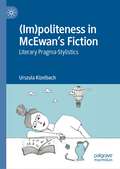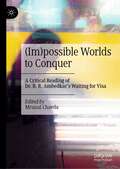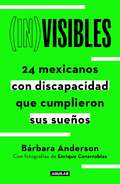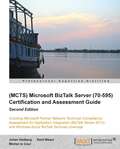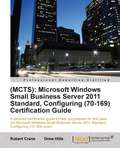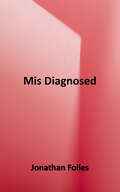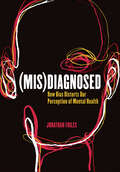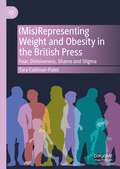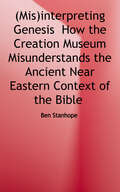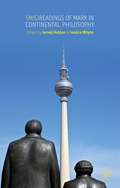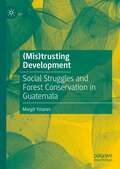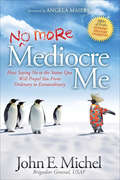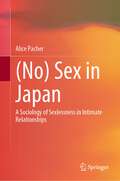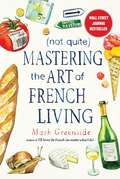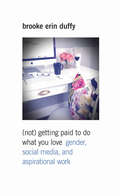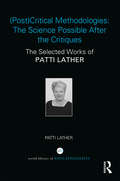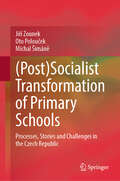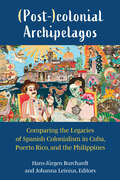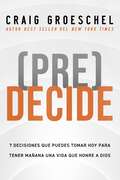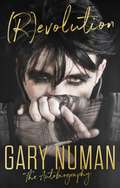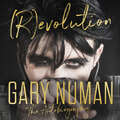- Table View
- List View
(Im)politeness in McEwan’s Fiction: Literary Pragma-Stylistics
by Urszula KizelbachThis book is a pragma-stylistic study of Ian McEwan’s fiction, providing a qualitative analysis of his selected novels using (im)politeness theory. (Im)politeness is investigated on two levels of analysis: the level of the plot and the story world (intradiegetic level) and the level of the communication between the implied author and implied reader in fiction (extradiegetic level). The pragmatic theory of (im)politeness serves the aim of internal characterisation and helps readers to better understand and explain the characters’ motivations and actions, based on the stylistic analysis of their speech and thoughts and point of view. More importantly, the book introduces the notion of “the impoliteness of the literary fiction” – a state of affairs where the implied author (or narrator) expresses their impolite beliefs to the reader through the text, which has face-threatening consequences for the audience, e.g. moral shock or disgust, dissociation from the protagonist, feeling hurt or ‘put out’. Extradiegetic impoliteness, one of the key characteristics of McEwan’s fiction, offers an alternative to the literary concept of “a secret communion of the author and reader” (Booth 1961), describing an ideal connection, or good rapport, between these two participants of fictional communication. This book aims to unite literary scholars and linguists in the debate on the benefits of combining pragmatics and stylistics in literary analysis, and it will be of interest to a wide audience in both fields.
(Im)possible Worlds to Conquer: A Critical Reading of Dr. B. R. Ambedkar’s Waiting for Visa
by Mrunal ChavdaWith multidisciplinary examination, this book explores Waiting for Visa, Ambedkar's autobiographical writing. This investigation ranges from Dalit Studies to Discourse analysis. It aims to provide the reader with in-depth knowledge of Ambedkar's unexplored autobiographical memoir and supplement a range of generalized works. The issues addressed in this book are essential to Ethnic and Race studies in general, to which Dalit Studies is but one contributing discipline. The Dalit Studies already have many texts. These texts are primarily concerned with Dalit identity politics, socio-mythological explorations, and Ambedkarian thoughts on economics, politics, and racial-religious discriminations. These are not discussed with Ambedkar's life stories narrated by himself. This book bridges the gap between Dalit Studies and Ambedkar Studies to project how Ambedkar attempted to forge into an impregnable South Asian social, educational, and political fabric. This reference book aims to attract academics and students of Asian, South Asian, and Dalit Studies. The book appeals to educators, policymakers, and comparative literary scholars.
(In)visibles
by Bárbara AndersonSi en México más del 16% de la población, cerca de 21 millones o 1 de cada 6 mexicanos cuentan con algún tipo de condición discapacitante, ¿por qué parece que son muchos menos los casos que conocemos? Porque las personas con discapacidad (pcd) en nuestro país son una fuerza invisible. Si no es cada cuatro años que se celebran los paralímpicos, si no se acerca el Día Internacional de las pcd, cuando las marcas realizan acciones; si no es que el gobierno da beneficios fiscales para impulsar la inserción laboral de este grupo, el resto del tiempo las personas con discapacidad viven entre las sombras. Este libro busca arrojar un poco de luz a apenas veinticuatro de esos millones que no vemos. Con discapacidades de nacimiento o adquiridas y de diversos tipos, y origen de varias partes del país, medallistas olímpicos, empresarios, filántropos, ejecutivos, políticos, servidores públicos, artistas, activistas, conferencistas, académicos, abogados, un médico y hasta un standupero cuentan por primera vez sus historias con resiliencia, valentía y un propósito: ser referentes para otras pcd y motivar a la población general a ser agentes de cambio, a contribuir en multiplicar esa luz y velar por la inclusión en todos los aspectos de la vida. Un libro desgarrado, inspirador y sui géneris en el que la periodista y activista Bárbara Anderson presta su pluma para dar voz a quienes no cuentan, al tiempo que el reconocido fotógrafo Enrique Covarrubias ilumina sus rostros por primera vez con una mirada entre iguales. Invisibles es una lectura que cambia radicalmente la manera en la que vemos la discapacidad, mueve conciencias e invita a la acción.
(MCTS) Microsoft BizTalk Server (70-595) Certification and Assessment Guide: Second Edition
by Johan Hedberg Kent Weare Morten La CourA hands-on certification guide with practical examples and sample questions and answers to help BizTalk developers pass the Microsoft BizTalk Server 2010 (70-595) exam. If you are an intermediate level BizTalk developer who wants to pass the Microsoft BizTalk Server 2010 (70-595) exam, then this book is for you. A working knowledge of fundamental BizTalk concepts around the core messaging engine and building business processes using orchestrations is assumed but not required. In addition, core knowledge of Windows Communication Foundation (WCF) and a basic understanding of Electronic Data Interchange (EDI) is recommended.
(MCTS): Microsoft BizTalk Server 2010 (70-595) Certification Guide
by Johan Hedberg Kent WeareThis book is a hands-on certification guide with practical examples and Q&As to help BizTalk developers pass the Microsoft BizTalk Server 2010 (70-595) exam. If you are an intermediate level BizTalk developer who wants to pass the Microsoft BizTalk Server 2010 (70-595) exam, then this book is for you. A working knowledge of fundamental BizTalk concepts around the core messaging engine and building business processes using orchestrations is assumed but not required. In addition, core knowledge of Windows Communication Foundation (WCF) and basic understanding of Electronic Data Interchange (EDI) is recommended.
(MCTS): Microsoft Windows Small Business Server 2011 Standard, Configuring (70-169) Certification Guide
by Robert Crane Drew HillsThis book is a hands-on certification guide with practical examples and Q&As to help information technology (IT) professionals prepare for and pass the Microsoft Windows Small Business Server 2011 Standard, Configuring (70-169) exam. If you are an information technology (IT) professional; administrator, consultant or system integrator who works in or consults with small businesses that use Windows Small Business Server (SBS) 2011 Standard, then this book is for you. At least one year of experience in deploying and managing network solutions in a production environment is recommended.
(MIS) Diagnosed: How Bias Distorts Our Perception of Mental Health
by Jonathan FoilesA passionate and well-informed study on the importance of improving inclusiveness in mental health evaluations.―Kirkus Reviews In a clear, empathetic style, Jonathan Foiles, author of the critically acclaimed This City Is Killing Me, takes us through troubling examples of bias in mental health work. Placing them in context of past blunders in the history of psychiatry and the DSM, he looks closely at questions that lay bare the intersections between mental health care, race, gender, and sexuality: - Why are women more likely to be labelled borderline personalities? - Is transphobia being treated today like homosexuality was in the past? - Has "protest psychosis," a term used to diagnose Black men during the civil rights era, simply been renamed schizoaffective disorder? - How different is our current label of "intellectual disability" from the history of eugenics? - What does it actually mean to be diagnosed with a "mental illness"? This slim but wide-ranging collection of essays wrestles with these questions and offers potential ways forward in a world where mental health diagnoses can be helpful, but not necessarily absolute. A pragmatic and sympathetic guide to how we might craft a better and more just therapeutic future for all people.
(Mis)Diagnosed: How Bias Distorts Our Perception of Mental Health
by Jonathan Foiles&“Fascinating history . . . A passionate and well-informed study on the importance of improving inclusiveness in mental health evaluations.&” ―Kirkus Reviews In a clear, empathetic style, Jonathan Foiles, author of the critically acclaimed This City Is Killing Me, takes us through troubling examples of bias in mental health work. Placing them in context of past blunders in the history of psychiatry and the DSM, he looks closely at questions that lay bare the intersections between mental health care, race, gender, and sexuality: • Why are women more likely to be labeled borderline personalities? • Are transgender patients being treated today like gay patients were in the past? • Has &“protest psychosis,&” a term used to diagnose Black men during the civil rights era, simply been renamed schizoaffective disorder? • How different is our current label of &“intellectual disability&” from the history of eugenics? • What does it actually mean to be diagnosed with a &“mental illness&”? This slim but wide-ranging collection of essays wrestles with these questions and offers potential ways forward in a world where mental health diagnoses can be helpful, but not necessarily absolute. It is a pragmatic and sympathetic guide to how we might craft a better and more just therapeutic future for all people.
(Mis)Representing Weight and Obesity in the British Press: Fear, Divisiveness, Shame and Stigma
by Tara Coltman-PatelThis book is a linguistic analysis of the British obesity media narrative, analysing a large corpus of published newspaper articles to demonstrate how the language used perpetuates common misconceptions and stereotypes about weight and obesity, and then exploring the sociological effects of these widespread conceptualisations. Weight stigma and weight bias are misunderstood issues, and often underestimated in terms of their prevalence and effect by society at large. The author examines topics including the role of power and persuasion, the use of metaphor, the personal stories of members of the general public, and the gendered real-life consequences of arbitrary weight standards to provide a linguistic driven study of obesity in news media. Obesity is an issue which sits at the intersection of science and the humanities, and as such, although the research methods used are firmly situated within the field of Linguistics, this book will also be of interest to readers from fields as diverse as Sociology, Fat Studies, Media Studies, Medicine and Psychology.
(Mis)interpreting Genesis: How the Creation Museum Misunderstands the Ancient near Eastern Context of the Bible
by Ben Stanhope"Stanhope has dedicated many years to combatting the misinformation circulated by young-earth creationists in print and online. In this book, we see the fruit of his labors and a clear demonstration of his love for the Bible and dedication to understanding it in its historical and cultural context. The result is a monumental work.... The book offers a positive and remarkably thorough survey of the relevant biblical texts (both the ones young-earth creationists twist and the ones they conveniently ignore) as well as of relevant archaeological data.... In short, the book offers a compelling case for how to interpret the biblical material about creation that is more honest and more genuinely biblical in character than what one finds in the homeschooling and other literature promoted by the Creation Museum and other organizations like it. All those concerned not only about the state of science education in the United States, but also the decline in biblical literacy, owe Stanhope a debt of gratitude." - James F. McGrath, Clarence L. Goodwin Chair in New Testament Language and Literature, Butler University. Author of The Only True God: Monotheism in Early Judaism and Christianity "Stanhope relies on the most up-to-date scholarship to explain many concepts in the biblical texts that have been misunderstood by many people in today's world. This book is necessary for anyone to dive deeper into the biblical texts. I cannot recommend it enough." - Michael Jones, Founder and Director of the Inspiring Philosophy Christian research video library. Ben Stanhope has served as a Garrett Fellow in the Department of Literature and Culture of Boyce College, holds a certificate in Worldview from Biola University, a B.A. from the Southern Baptist Theological Seminary, and an M.A. in Manuskriptkulturen from the Centre for the Study of Manuscript Cultures at the German University of Hamburg, where he was educated in archaeometric techniques under Dead Sea Scroll scientists. His research thesis First Temple Hebrew Seals and Bullae Identifying Biblical Persons synthesizes archaeological and museum catalog data to present novel discoveries in the interpretation of Egyptian icons on biblical period papyrus seals. He has authored a work on first century Roman philosophy entitled, The Golden Sayings of Epictetus: In Contemporary English.
(Mis)readings of Marx in Continental Philosophy
by Jernej Habjan Jessica Whyte(Mis)readings of Marx In Continental Philosophy reflects on the way major European philosophers related to the work of Karl Marx. It brings together leading and emerging critical theorists to address the readings of Marx offered by Benjamin, Adorno, Arendt, Althusser, Foucault, Derrida, Deleuze, Negri, Badiou, Agamben, Rancière, Latour and Žižek.
(Mis)trusting Development: Social Struggles and Forest Conservation in Guatemala
by Margit YstanesThis book explores the role of trust in social struggles related to tropical forest preservation in El Petén, Guatemala. The author combines ethnographic exploration of how trust is formed in the local context with insights about postcolonial inequalities, which structure discourses on development and climate change in ways that exclude local actors. Empirically, the book follows the complicated engagements of local concession-holding forest communities with outside actors aiming to develop archaeology-based tourism in Guatemala’s Maya Biosphere Reserve. A central argument presented is that processes initiated for societal improvement need to be based on trusting relationships in order to be successful. This requires a context sensitive approach that takes into consideration how trust is formed and undermined in specific lifeworlds, as well as postcolonial inequalities. Theoretically, the book expands existing conceptualisations of trust and emphasises the potential for ethnographic research to further our understanding of this elusive phenomenon. “How do trust and mistrust permeate the fluid relations among communities living off the forests of northern Guatemala, outside stakeholders, and a global discourse of cultural heritage and climate change? This remarkable book by a pioneer of the anthropology of trust dissects a questionable development plan that threatens the rights and livelihood of a local population marginalized in a decision-making process aimed at protecting ancient archaeological sites, promoting tourism, and preserving the rain forest.” — Antonius C. G. M. Robben, author of Argentina Betrayed: Memory, Mourning, and Accountability and Professor Emeritus of Anthropology at Utrecht University, the Netherlands“El Mirador is an extraordinary Mayan archaeological site in the jungles of northern Guatemala, accessible only by foot or helicopter. Poor mestizos, for whom the forest is home, have become expert tour guides and forest conservationists. Outsiders who view the ruins and forest as a resource primed for extraction have extravagant plans to “develop” the area. Ystanes offers a richly contextualized and theorized exploration of the struggles over caring for and living in and off this exceptional and fragile place, by focusing on the role of trust in the complex negotiations over its future and in identities more broadly. While showing how structural inequalities breed mistrust at every scale, this is a beautiful and nuanced take on existential questions of living in worlds shaped by violence and competition with historical knowledge, ecosystem survival, and livelihoods at stake.” — Diane Nelson, Bass Chair and Eads Family Professor of Cultural Anthropology, Duke University, USA
(No More) Mediocre Me: How Saying No to the Status Quo Will Propel You From Ordinary to Extraordinary
by John E. MichelIf you were to account for your life at this moment—are you living up to your own potential? Does your present state of affairs give you reason to be disappointed or discouraged? Is your job unsatisfying…your relationships far from what they could be…your spiritual life a mere shadow of what it once was? If you answered “yes” to one or more of these questions, then there is a very good chance you--like scores of other Americans--have been lulled into accepting a life that is simply "good enough." This is what I term a Mediocre Me Mindset--a confining way of thinking about your role in the world that convinces you to settle for the perceived safety of the status quo rather than push outside your comfort zone to try and make tomorrow a little better than you found it today. In Mediocre Me, you will find a simple, yet profoundly powerful approach to rethinking the way you view your role in the world. It’s a proven means of breaking free from the grasp of mediocrity so you can lead a life of true purpose, meaning, and significance. And perhaps the best part of all…it’s not a new idea! The concepts in Mediocre Me are actually anchored in an over two thousand year old legend. One that reminds us we are at our individual and collective best not when we are standing still, unwitting prisoners of the status quo, but rather, when we are unafraid to reject apathy and embrace action by leading the positive change we want to see occur in our surroundings. Ralph Waldo Emerson once wrote, “America is another name for opportunity.” At a time in our nation’s history when we seem more divided than united, more fearful than hopeful, there can be no more fence-sitting. It’s time to begin writing a different, more empowering personal leadership story of your own. One that will energize you to do what you can, when you can, where you can, to be a force for good in your part of the world when doing so is needed now more than ever.
(No) Sex in Japan: A Sociology of Sexlessness in Intimate Relationships
by Alice PacherThis book presents a sociological perspective on (non-)sexual intimate relationships in contemporary Japan. The phenomenon of sexlessness in intimate relationships has gained increasing attention in popular culture. However, few scholarly investigations exist in examining this striking trend in Japan. This book presents an analysis of the socio-structural elements within both academic and public discourses in Japanese culture relating to sexlessness in intimate relationships. Drawing from original interview research, the author provides insights into individuals’ experiences and investigates the connection between sexual inactivity, sexuality and Japanese couples’ satisfaction and well-being in their relationships. The book discusses how work environment, childbirth, infertility treatments, as well as past sexual experiences, extramarital affairs, and both unmarried and married couple relationships influence individual sexual behavior and consciousness. A broad overview of the meaning of sexuality through a cultural comparison with discourses on sexuality and interview results in Germany and Austria is also provided. To this end, the book calls into question whether sexlessness is a unique Japanese phenomenon or whether parallels and similarities might also be found in Western societies. Bringing together academic and public discourses on sexless couples, this book engages a rethinking of the meaning of sexuality, love, intimacy and relationships, both in and outside of Japan. It is of interest to students and scholars of Japanese studies, gender, sexology and sociology.
(North Carolina) American Anthem
by Edward L. Ayers Robert D. Schulzinger Jesús F. de la Teja Deborah Gray WhiteNIMAC-sourced textbook
(Not Quite) Mastering the Art of French Living
by Mark GreensideEvery year upon arriving in Plobien, the small Breton town where he spends his summers, American writer Mark Greenside picks back up where he left off with his faux-pas–filled Francophile life. Mellowed and humbled, but not daunted (OK, slightly daunted), he faces imminent concerns: What does he cook for a French person? Who has the right-of-way when entering or exiting a roundabout? Where does he pay for a parking ticket? And most dauntingly of all, when can he touch the tomatoes? Despite the two decades that have passed since Greenside’s snap decision to buy a house in Brittany and begin a bi-continental life, the quirks of French living still manage to confound him. Continuing the journey begun in his 2009 memoir about beginning life in France, (Not Quite) Mastering the Art of French Living details Greenside’s daily adventures in his adopted French home, where the simplest tasks are never straightforward but always end in a great story. Through some hits and lots of misses, he learns the rules of engagement, how he gets what he needs—which is not necessarily what he thinks he wants—and how to be grateful and thankful when (especially when) he fails, which is more often than he can believe. Introducing the English-speaking world to the region of Brittany in the tradition of Peter Mayle’s homage to Provence, Mark Greenside’s first book, I’ll Never Be French, continues to be among the bestselling books about the region today. Experienced Francophiles and armchair travelers alike will delight in this new chapter exploring the practical and philosophical questions of French life, vividly brought to life by Greenside’s humor and affection for his community.
(Not) Getting Paid to Do What You Love: Gender, Social Media, and Aspirational Work
by Brooke Erin DuffyAn illuminating investigation into a class of enterprising women aspiring to “make it” in the social media economy but often finding only unpaid work Profound transformations in our digital society have brought many enterprising women to social media platforms—from blogs to YouTube to Instagram—in hopes of channeling their talents into fulfilling careers. In this eye-opening book, Brooke Erin Duffy draws much-needed attention to the gap between the handful who find lucrative careers and the rest, whose “passion projects” amount to free work for corporate brands. Drawing on interviews and fieldwork, Duffy offers fascinating insights into the work and lives of fashion bloggers, beauty vloggers, and designers. She connects the activities of these women to larger shifts in unpaid and gendered labor, offering a lens through which to understand, anticipate, and critique broader transformations in the creative economy. At a moment when social media offer the rousing assurance that anyone can “make it”—and stand out among freelancers, temps, and gig workers—Duffy asks us all to consider the stakes of not getting paid to do what you love.
(PRODUCT) RED (A)
by Youngme Moon Michael I. Norton David ChenDescribes the launch and initial results of the (PRODUCT) RED campaign, a social marketing initiative conceived of by U2's Bono and Bobby Shriver to combat AIDS in sub-Saharan Africa. The company licensed the (RED) brand to partner companies, which initially included Gap, Apple, Motorola, Armani, and American Express. The business model was structured to benefit partner companies by increasing consumer purchases - of (RED)-branded products such as red iPods and phones - while also resulting in increased donations to the Global Fund.
(PRODUCT) RED (B)
by Youngme Moon Michael I. Norton David ChenUpdates the (PRODUCT) RED (A) case through early 2008, including announcements of new partner relationships (with Hallmark, Microsoft, and Dell) as well as new communications initiatives.
(Post)Critical Methodologies (Post)Critical Methodologies (Post)Critical Methodologies (Post)Critical Methodologies: The Science Possible After the Critiques: The Selected Works of Patti Lather
by Patti LatherIn the World Library of Educationalists series, international experts themselves compile career-long collections of what they judge to be their finest pieces – extracts from books, key articles, salient research findings, major theoretical and practical contributions – so the world can read them in a single manageable volume. Readers will be able to follow the themes and strands and see how their work contributes to the development of the field. (Post)Critical Methodologies forms a chronology through the texts and concepts that span Patti Lather’s career. Examining (post)critical, feminist and poststructural theories, Lather’s work is organized into thematic sections that span her 35 years of study in this field. These sections include original contributions formed from Lather’s feminism and critical theory background. They contain her most cited works on feminist research and pedagogy, and form a collection of both early and recent writings on the post and post-post, with a focus on critical policy studies and the future of post-qualitative work. With a focus on the implications for qualitative inquiry given the call for scientifically based research in education, this compelling overview moves through Lather’s progressive thoughts on bridging the gap between quantitative and qualitative research in education and provides a unique commentary on some of the most important issues in higher education over the last 30 years. This compilation of Lather's contribution to educational thinking will prove compelling reading to all those engaged in student learning in higher education worldwide.
(Post)Socialist Transformation of Primary Schools: Processes, Stories and Challenges in the Czech Republic
by Jiří Zounek Oto Polouček Michal ŠimáněThis book addresses the transformation of primary education in the former Czechoslovakia (now the Czech Republic) after the fall of the communist regime in 1989. It follows the overall transformation of education and school policy and offers original insights into the everyday life of the schools at that time. It also provides a unique perspective on the whole transformation process. The work discusses the school environment in the context of specific local characteristics, such as parents, community, regional institutions, and national and international contexts. The book specifically focuses on the changes in primary school management in terms of economics, organization, and personnel. The processes of pedagogical change are an essential theme of the book. They cover how teachers proceeded through the changes in their work at the time of the transformation and the reasons for their resistance to change, including the challenges that the transformation introduced into their work and personal lives. The book also monitors how the teachers navigated the selection and use of new textbooks and tools, such as digital tools. The work originates in historical-pedagogical research, based primarily on the oral history method and complemented by the study of contemporary documents.
(Post-)colonial Archipelagos: Comparing the Legacies of Spanish Colonialism in Cuba, Puerto Rico, and the Philippines
by Johanna Leinius Hans-Jürgen BurchardtThe Puerto Rican debt crisis, the challenges of social, political, and economic transition in Cuba, and the populist politics of Duterte in the Philippines—these topics are typically seen as disparate experiences of social reality. Though these island territories were colonized by the same two colonial powers—by the Spanish Empire and, after 1898, by the United States—research in the fields of history and the social sciences rarely draws links between these three contexts. Located at the intersection of Postcolonial Studies, Latin American Studies, Caribbean Studies, and History, this interdisciplinary volume brings together scholars from the US, Europe, Latin America, the Caribbean, and the Philippines to examine the colonial legacies of the three island nations of Cuba, Puerto Rico, and the Philippines. Instead of focusing on the legacies of US colonialism, the continuing legacies of Spanish colonialism are put center-stage. The analyses offered in the volume yield new and surprising insights into the study of colonial and postcolonial constellations that are of interest not only for experts, but also for readers interested in the social, political, economic, and cultural dynamics of Cuba, Puerto Rico, and the Philippines during Spanish colonization and in the present. The empirical material profits from a rigorous and systematic analytical framework and is thus easily accessible for students, researchers, and the interested public alike.
(Pre)Decide: 7 decisiones que puedes tomar hoy para la vida que quieres vivir mañana
by Craig Groeschel¿Por qué seguimos tomando decisiones de las que luego nos arrepentimos, y a veces incluso las mismas malas decisiones una y otra vez? Basándose en las Escrituras, en historias y en las últimas investigaciones sobre el comportamiento humano, nos revela la clave para tomar las decisiones que queremos y experimentar la alegría y la libertad que Dios tiene para nosotros.Todos queremos tomar excelentes decisiones. Pero ¿qué ocurre entre nuestras buenas intenciones y las decisiones que tomamos al momento? Ojalá pudiéramos tomar decisiones con antelación en lugar de hacerlo cuando estamos estresados, abrumados o influidos por el miedo o las emociones. En (Pre)Decide, aprenderemos cómo hacerlo.El pastor Craig Groeschel sabe por experiencia personal y como consejero lo que es estar atrapado en un ciclo de mala toma de decisiones. En (Pre)Decide, él comparte lo que ha descubierto sobre el poder de &“predecidir.&”Con ejercicios que invitan a la reflexión y preguntas para reflexionar, este libro interactivo nos enseña que la calidad de nuestras decisiones determina la calidad de nuestras vidas.(Pre)Decide te ayudará a:Comprender la ciencia que hay detrás de tus hábitos de toma de decisionesSuperar la fatiga de decisión y los miedos debilitantesDisminuir el papel de las emociones en la toma de decisionesVer cómo tus pequeñas decisiones determinan el tipo de persona en que te transformasDefinir y poner en práctica las siete decisiones previas que definen tu vida y que puedes tomar hoy mismoTransformarte en la persona que quieres ser comienza incluso antes de tomar una decisión. En (Pre)Decide, descubrirás el poder de tomar decisiones hoy, para tener mañana una vida que honre a Dios.Think AheadWhy do we keep making choices we later regret--sometimes even the same bad choices over and over? Drawing on Scripture, story, and cutting-edge research into human behavior, pastor Craig Groeschel reveals the key to making the choices we want to make and experiencing the joy and freedom God has for us.We all want to make great decisions. So what happens between our good intentions and the choices we actually make in the moment? If only we could make decisions ahead of time rather than when we're under stress, overwhelmed, or swayed by fear or emotion. In Think Ahead, we learn how to do just that.Pastor Craig Groeschel knows from personal experience and as a counselor to others what being trapped in a cycle of poor decision-making is like. In Think Ahead, he shares what he has discovered about the power of "pre-deciding."With thought-provoking exercises and questions for reflection, this interactive book teaches us that the quality of our decisions determines the quality of our lives. Think Ahead will help you:Understand the science behind your decision-making habitsOvercome decision fatigue and debilitating fearsDiminish the role of emotions in decision-makingSee how your small choices shape the kind of person you becomeDefine and put into action the seven life-defining pre-decisions you can make todayBecoming the person you want to be starts before you even make a decision. In Think Ahead, you'll discover the power of making decisions today to help you live the life you want to have tomorrow.
(R)evolution: The Autobiography
by Gary NumanA Daily Mail 'best TV and showbiz memoir' for 2020From humble beginnings in Middlesex, where money was scarce but dreams were encouraged, to the award-winning godfather of electronica, Gary Numan has seen it all. His incredible story can be charted in two distinct parts . . .The first: a stratospheric rise to success quickly followed by a painful decline into near obscurity. At school, Gary fell through the cracks of the system and was expelled. An unlikely but determined popstar, he earned his first record deal aged nineteen and, two years later, had released four bestselling albums and had twice toured the world. But, aged just twenty-five, it felt like it was all over. Gary's early success began to hold him back and he battled to reconcile the transient nature of fame with his Asperger's syndrome.The second: a twenty-plus year renaissance catalysed by a date with a super-fan. Gary catalogues his fifteen-year struggle with crippling debts, his slow, obstacle-laden journey back to the top (and the insecurity that comes with that) and why Savage reaching #2 in 2017 meant more than the heady heights of 1979. Gary also candidly discusses the importance of his fans; why having Asperger's is a gift at times; the inspiration behind the lyrics; flying around the world in 1981; IVF struggles and the joy of fatherhood and his battle with depression and anxiety.(R)evolution is the rollercoaster rise and fall (and rise) of one man, several dozen synthesisers, multiple issues and two desperately different lives. By turns hilarious and deeply moving, this is Gary Numan in his own words - a brutally honest reflection on the man behind the music.
(R)evolution: The Autobiography
by Gary NumanThis audiobook opens and ends with music from Gary Numan's 2021 album IntruderA Daily Mail 'best TV and showbiz memoir' for 2020From humble beginnings in Middlesex, where money was scarce but dreams were encouraged, to the award-winning godfather of electronica, Gary Numan has seen it all. His incredible story can be charted in two distinct parts . . .The first: a stratospheric rise to success quickly followed by a painful decline into near obscurity. At school, Gary fell through the cracks of the system and was expelled. An unlikely but determined popstar, he earned his first record deal aged nineteen and, two years later, had released four bestselling albums and had twice toured the world. But, aged just twenty-five, it felt like it was all over. Gary's early success began to hold him back and he battled to reconcile the transient nature of fame with his Asperger's syndrome.The second: a twenty-plus year renaissance catalysed by a date with a super-fan. Gary catalogues his fifteen-year struggle with crippling debts, his slow, obstacle-laden journey back to the top (and the insecurity that comes with that) and why Savage reaching #2 in 2017 meant more than the heady heights of 1979. Gary also candidly discusses the importance of his fans; why having Asperger's is a gift at times; the inspiration behind the lyrics; flying around the world in 1981; IVF struggles and the joy of fatherhood and his battle with depression and anxiety.(R)evolution is the rollercoaster rise and fall (and rise) of one man, several dozen synthesisers, multiple issues and two desperately different lives. By turns hilarious and deeply moving, this is Gary Numan in his own words - a brutally honest reflection on the man behind the music.
